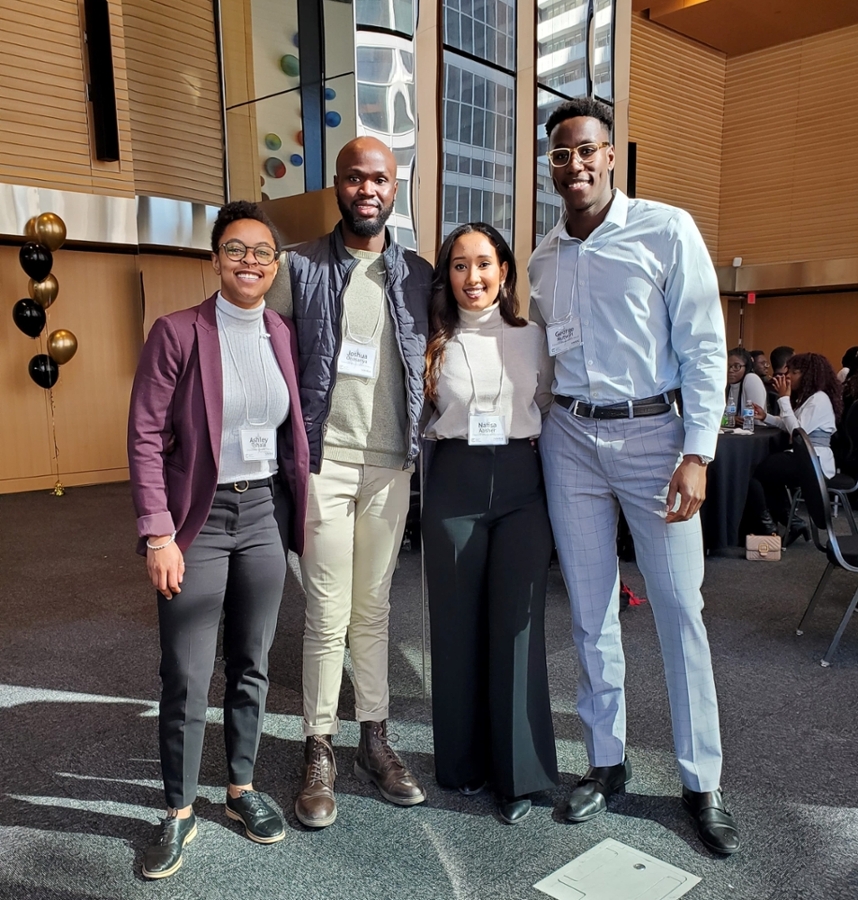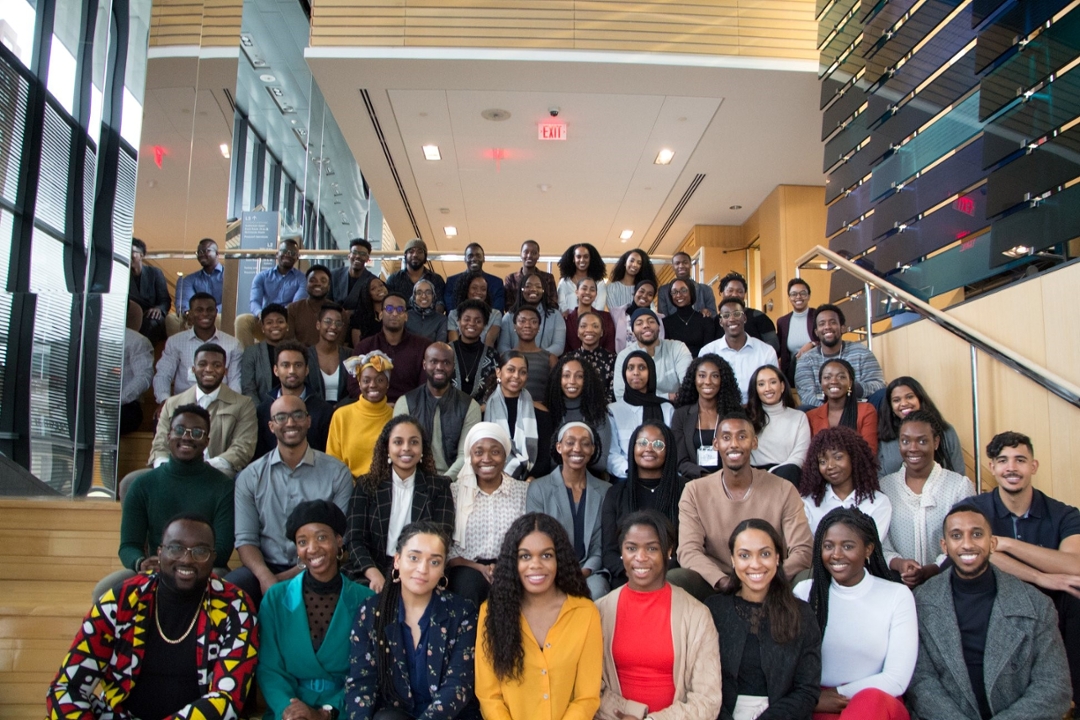
Why We Need A Black Medical Students Association at USask
One of the things I love most about being in Medicine is the moment you open the exam room door to reveal whose waiting behind it. The anticipation of getting to meet and help someone new. To have an impact on someone’s life, whether it be in a small way or long-lasting.
By Ashley TshalaThe feeling reminds me of the joy infants have when you play peekaboo with them. The excitement on their face when their tiny hands lift off their face and reveal the scene in front of them. The wonder in their sparkling eyes as they gaze at you, as if it was the first time all over again.
Now, there have certainly been times when I dread opening that door and for me, these are just a few of them: breaking bad news, difficult conversations, and of course… OSCEs. However, whenever I open that door I am always most excited to see who my patient is.
Growing up in Saskatchewan, I was usually one of the few visible minorities in my class. Couple that with my energetic and (according to my mom) sometimes unruly personality, I often stood out.
This never bothered me, but I always wondered what it would be like to have more friends with my skin colour, to learn more about my culture in social settings, and to feel comfortable eating ethnic food in public.
Of course, I carry that sentiment partially into undergrad and Medicine but at least I was given a platform and opportunities by which to change that. One such opportunity was, the Making the Links Certificate in Global Health program.
Making the Links (MTL) was an incredible experience in terms of understanding the social determinants of health, social accountability, advocacy, and working with marginalized or underserved populations. The local and global community experiences left me with a sense of wonder and awe as I eagerly learned more about the cultures around me.
Thanks to MTL, I’ll never forget my first sweat in Dillon, the first time I caught a fish in Ile-à-la-Crosse, or even my first bowl of bùn chả in Hanoi. Most importantly, I left this program with a sense of cultural competence and a renewed vigor to help the underserved minorities of Saskatchewan.
More recently, I had the immense pleasure of attending the inaugural AGM for the Black Medical Students Association of Canada (BMSAC) in Toronto. The BMSAC is a collective project by black medical students across the seventeen Canadian medical schools to better understand (and objectively quantify) the barriers students of colour face both entering and within medicine and the effects of poor representation on patient outcomes.
More importantly, it offers a sense of community to people like me and our allies. To be surrounded by people of one’s own culture and background, to share and reflect on common experiences, to learn from one another and grow as a community, and to support each other through hardships are invaluable experiences to me. These experiences also caused me to wonder if there was more that I could do to support my own colleagues back home or to foster a learning environment that addresses diversity in medicine.
Looking back on my time in Medicine, there were a few moments where I felt our learning could be improved. There was no mention of how the mechanism and treatment of hypertension is different in black populations or how to perform dermatological exams on patients of colour.
On board exams, having an “African” patient was almost a guarantee that the answer would be either sickle cell anemia or malaria. Unfortunately, this is an inappropriate and inaccurate representation of competence with race predominant conditions. Thus, going forward, I want to challenge that narrative, to educate my peers on issues that are important to black patients and other patients of colour.
So when you open that exam room door and see a patient of colour sitting there, I want to make sure that you feel competent enough to understand and address all aspects of this person’s care, no matter your own heritage or background.
This endeavor cannot be a solo venture, so with the creation of our own chapter of the Black Medical Students Association of Canada, we can do our best to continue the efforts of the Division of Social Accountability, the college’s Diversity and Inclusion Working Group and our dean, to make Medicine at the University of Saskatchewan as inclusive, diverse, and culturally competent as possible.
Because if you are going to stand out, you might as well be outstanding.

